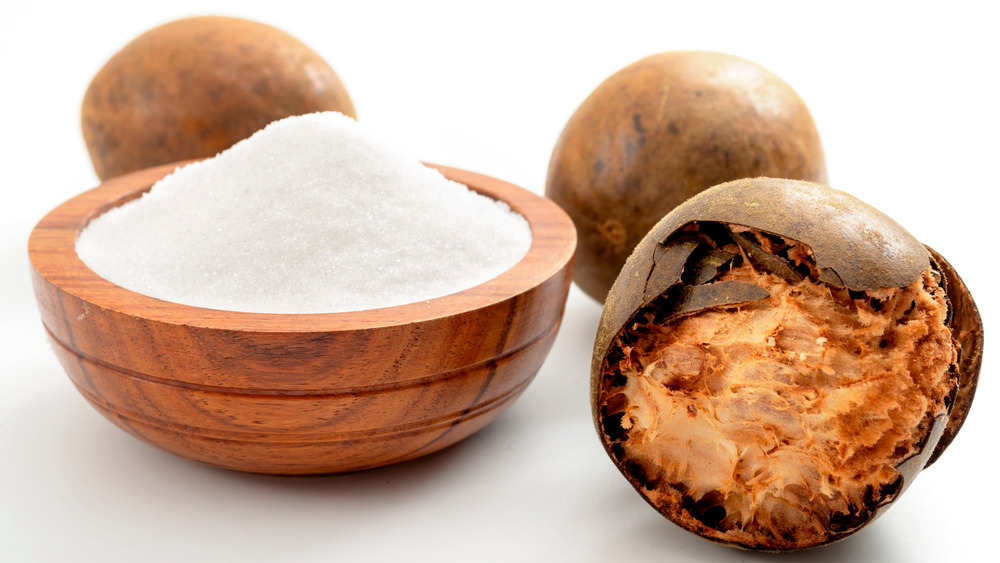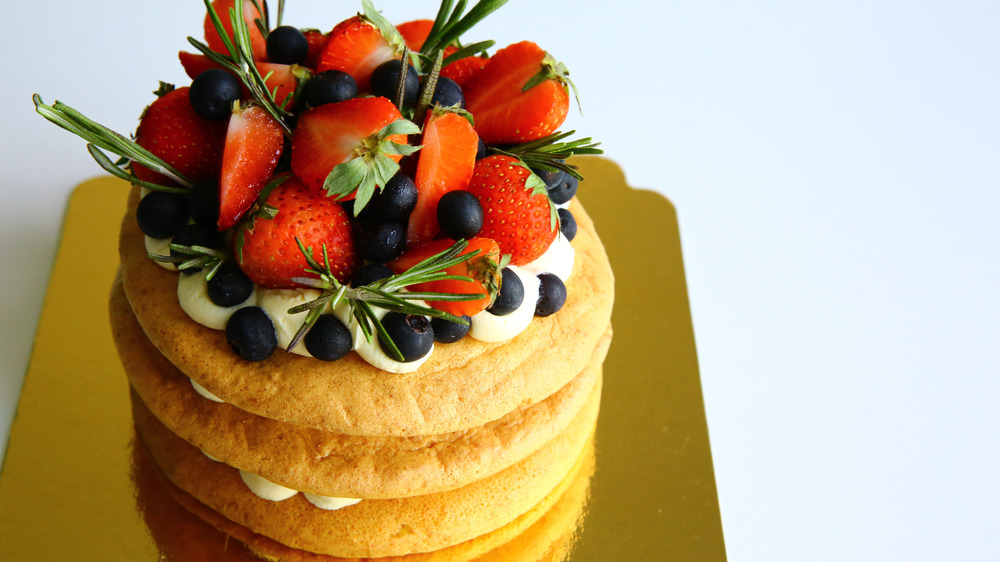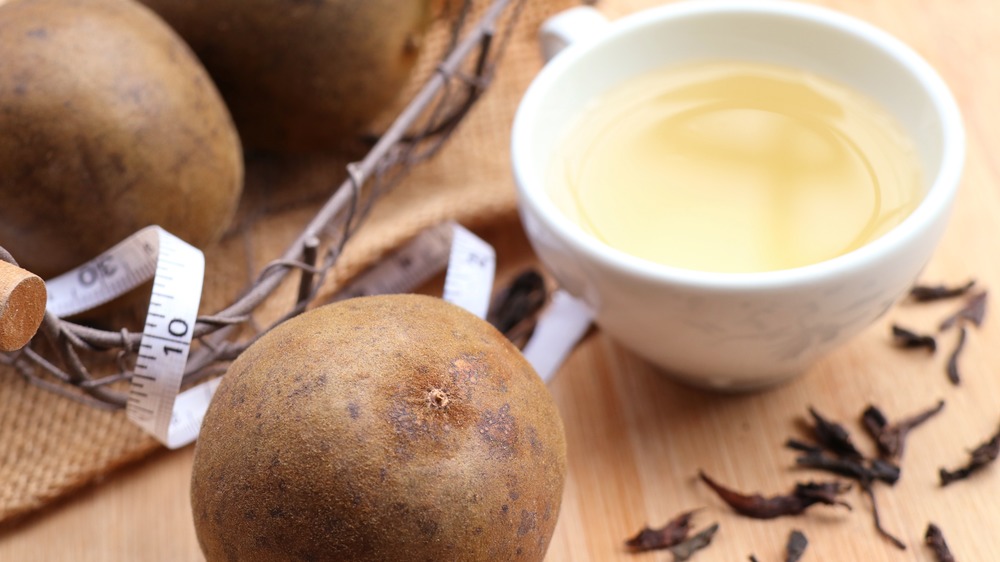Does Monk Fruit Leave a Funny Aftertaste
What You Should Know Before Using Monk Fruit Sweetener
Alternative sweeteners are all the rage as the world tries to balance out its need to eat healthy with its love of and for sweet foods and desserts. One such sweetener that has been gaining in popularity and making headlines over the past couple of years is monk fruit sweetener. Per Food Insight, monk fruit sweetener is derived from the juice of the monk fruit, which also goes by the names lo han guo and Swingle fruit. It hails from Southern China where it has centuries of history and is lauded for its medicinal uses.
Today, monk fruit sweetener is made by discarding the skin and seeds and compressing the fleshy fruit to squeeze out its juice. What makes monk fruit juice so amazing is that it has no calories. Despite this, monk fruit sweeteners are said to be 150 to 200 times sweeter than regular sugar, which means it doesn't take a lot to feed your sugary cravings. According to Healthline, the sweetness of monk fruit comes from antioxidants instead of fructose or glucose. Sounds good so far, right? But it also gives rise to many questions: Are monk fruit sweeteners safe to eat? What do sweeteners made with monk fruit taste like and how do they measure up when it comes to cooking and baking with them? And, of course, the question that prompts many people to use alternative sweeteners in the first place: can monk fruit sweeteners help you control your weight?
Monk fruit sweeteners can be used in baking
According to The Kitchn, who conducted their own taste test using Monk Fruit In The Raw and Nectresse, the consistency of monk fruit sweeteners is very much like plain old granulated white sugar. With regards to taste, they found it sweet and not plagued by the vaguely bitter aftertaste that one can experience when using the alternative sweetener, stevia. They also noted that while monk fruit sweeteners are heat-stable and can be used to whip up your favorite baked goods, substitution can be tricky due to how truly sweet these alternative sweeteners are.
Per Bon Appetit Management Company, you cannot substitute 1:1. Instead, they suggest starting with 1/3 of a cup for every cup of regular sugar. But they also caution that it might take some experimentation to find just the right level of sweetness your taste buds desire, so be patient and be prepared to make adjustments to your recipes. Still, Food Insight attempts to temper overly optimistic expectations with a caution that foods made with monk fruit sweeteners can look a little different and taste different since sugar actually helps shape our foods. They also noted, that most alternative sweeteners made with monk fruit are actually blends. The two brands The Kitchn tested are good examples of this. One product was made from monk fruit extract, erythritol, sugar, and molasses, and the other from monk fruit extract and corn-derived dextrose. So, make certain to read the ingredient list.
Monk fruit sweeteners need more research
Are monk fruit sweeteners safe to consume? Food Insight says monk fruit sweeteners are, indeed, safe to use, including for children and pregnant women. Monk fruit extract has been approved by the U.S. Food and Drug Administration as a Generally Recognized As Safe (GRAS) product since 2010. However, it's important to point out that there have not been a lot of studies that focus on children and low- to no-calorie sweeteners and the acceptable daily intake for this sweetener has yet to be established.
But can monk fruit sweeteners be used to control weight? The answer is we don't know. Healthline says there simply haven't been any studies to assess monk fruit sweeteners' positive or negative effects on weight. While its zero-calorie property has us swooning, it may be a little too soon to get too excited. Furthermore, Dr. Michelle Pearlman, a gastroenterologist and physician nutrition specialist with the University of Miami Health System, echoed this sentiment when she told the school's Health News site that there simply isn't enough research when it comes to alternative natural sweeteners like monk fruit. Dr. Pearlman went on to say, "Some people who drink an iced tea with stevia may use that as an excuse to consume an extra-large order of fries There is also an unconscious component because these sugar substitutes don't impact satiety signals like glucose. You don't get the normal release of hormones that makes you feel full."
peiffersandid1950.blogspot.com
Source: https://www.mashed.com/290184/what-you-should-know-before-using-monk-fruit-sweetener/



0 Response to "Does Monk Fruit Leave a Funny Aftertaste"
Post a Comment